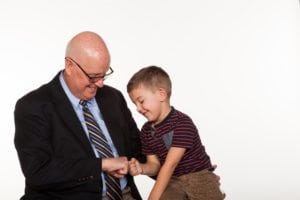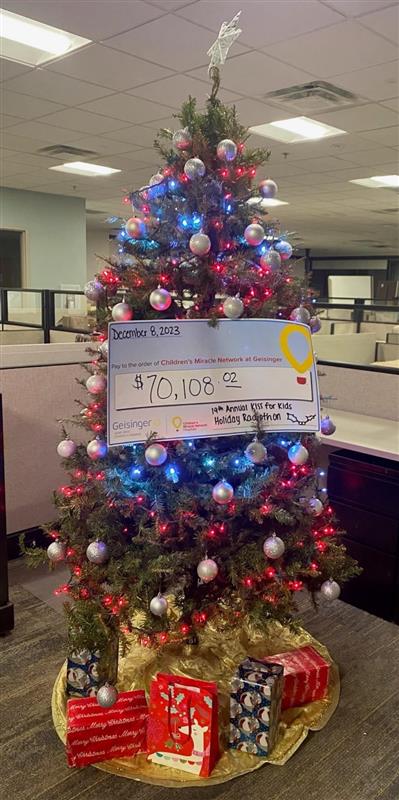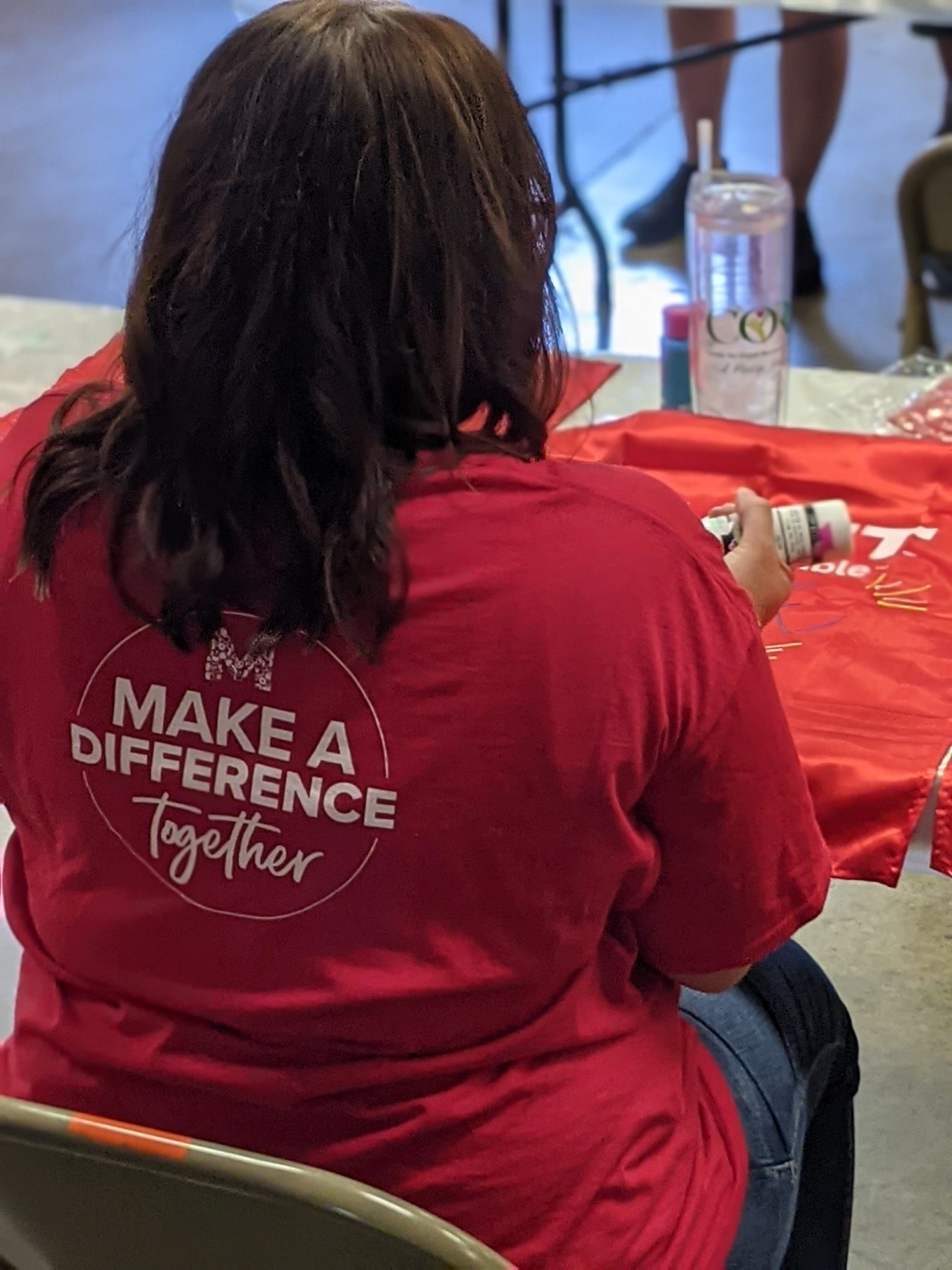2017 Miracle Kid Lincoln Brunn

Four-year-old Lincoln Brunn of Dallas, Pa., has an extremely contagious smile. It is hard to look at the young man in a full ear-to-ear grin and keep a straight face. He loves Paw Patrol and his favorite character is Chase.
He is full of endless energy and is pretty much on the go from sun up until sundown, according to his parents, Christine and Jeff Brunn.
However, in April 2013, when Lincoln was 5 months old, his parents began noticing some unusual behaviors.
One night he stopped nursing. Christine thought it might have been because he was teething, so she took him to the family pediatrician to be checked. The doctor thought Lincoln might have some congestion and a possible ear infection.
“The antibiotic didn’t seem to be helping. It seemed like he was hungry, but he was having trouble even drinking from a bottle,” Christine said. “It was like he couldn’t swallow, and at one point, it seemed like he was choking.”
Soon afterward, his body began to become limp. The Brunns rushed Lincoln to the emergency room of their local community hospital.
Doctors ran tests to try to find what was going on with Lincoln. He was given some fluids intravenously.
“After the IV, he seemed to perk up, but doctors always do that test on babies where the baby grips their fingers and they pull the baby up. The head is supposed to come up with the baby,” Christine said. “When they tried that with Lincoln, he was so limp that his head completely touched his back. He was so limp and weak that he couldn’t lift his head.”
The caregivers quickly made the decision to transfer Lincoln to Geisinger Janet Weis Children’s Hospital in Danville, where a team of specialists waited.
“Carrying him was like carrying a dish towel or a bag of potatoes,” Jeff said. “He just kind of flopped over your arms.”
Because of the loss of the use of his body and an almost complete state of paralysis, pediatric neurologists at Geisinger were the first to be consulted.
The neurology team closely examined and tested Lincoln for seizure disorders and neuromuscular problems, but kept hitting roadblocks.
Christine’s mother, Kathy Vidumsky,who worked as a nurse practitioner at Geisinger mentioned an article that she had read in Time magazine about a child who wouldn’t eat. The diagnosis was infantile botulism. At that point, the neurologists contacted infectious diseases specialists to examine Lincoln.
Upon examination, the infectious diseases specialist immediately suspected that Lincoln was suffering from a classic case of infantile botulism.
Infantile botulism is an extremely rare condition, with less than 100 babies diagnosed each year in the United States. It affects the nervous system, and essentially paralyzes the patient. A form of botulism is used in Botox® by paralyzing the muscles, everything relaxes and wrinkles are reduced or eliminated.
“The first thing parents notice with infantile botulism is that the kid is not feeding as well. They notice he or she gets tired out from feeding,” said Michael Ryan, DO, pediatric infectious diseases specialist. “The next thing they notice is the kid will get floppy. Lincoln had all these symptoms.”
The problem with diagnosing infantile botulism is that it needs to be tested from a stool sample and can take several days or weeks to get a confirmation. This was time that Lincoln did not have. If it were the rare disease and if left untreated, Lincoln would quickly fall into respiratory failure.
As rare as the disease is for young children, the medicine to treat the disease is almost as rare. The medicine is called BabyBIG® (botulism immune globulin).
“The medication is extremely expensive — somewhere between $40,000 and $50,000 for a tiny shot,” Dr. Ryan said. “The only place it is made in the world is the California Department of Health. They keep a supply on the East Coast in North Carolina. If you have a case like this, you call North Carolina and they get it to you within hours.”
The infectious diseases specialists explained to the Brunns that if Lincoln did have infantile botulism, after receiving the IV medication, he should show improvement within 24 hours.
“If there is a suspected case of infantile botulism, you treat it right away and hope you are on the right track and not wasting time for the family or the child,” Dr. Ryan said.

The medicine arrived the next day and was immediately administered to baby Lincoln. Just a short time after the medication was given, the Brunns could see a remarkable difference.
“After only two hours, the doctor came in and lifted him up and he was able to hold his head up,” Jeff said. “I asked, ‘Are you holding his head?’ and the doctor responded, ‘No.’”
“After Lincoln received the BabyBIG, he responded so quickly,” Christine added. “Our family was so frightened and couldn’t understand why he was going downhill as quickly as he did. Seeing the positive response from the medicine was a miracle to us.”
Dr. Ryan echoed the Brunns’ thoughts about Lincoln’s recovery.
“The medicine is a real miracle. It’s like Harry Potter’s wand,” he said. “They are literally getting better almost by the time you are leaving the room. You have a kid that is paralyzed. They can’t eat and they are constipated because their bowels aren’t working. Immediately after giving him this medicine, parents go from a floppy kid to ‘Now I am getting my kid back.’ It is that dramatic.”
The expensive drug is surprisingly cost-effective, as well. A child with infantile botulism, if not diagnosed immediately and treated, will need intensive care and could be on a ventilator for days or even weeks until the diagnosis is made.
“It is worth every penny,” Dr. Ryan said. “In this case, we got involved early enough that we kept him off the ventilator and saved a week or several weeks of hospitalization. Usually within a week of giving this medicine, they are out of the hospital and are functioning normally.”
That was exactly the case for Lincoln. He was admitted on May 2, given the medication on May 4 and was discharged on May 9.
The mystery is still where he may have contracted the disease. The most common way used to be exposure to honey, but after several cases of infantile botulism decades ago, parents are now warned never to give honey to their babies.
“You cannot sterilize honey. There are botulism spores in every honey product that there is. The way you get honey is the way the bees made it. They don’t do anything to it,” Dr. Ryan explained. “I have probably had a dozen botulism cases over my 37 years of being here, but never had one from parents giving their kids honey.”
However, botulism spores are on more than just honey. They are on pretty much everything — adults ingest them all the time without issue.
“That is another reason to wash your food,” Dr. Ryan said with a smile. “It doesn’t affect adults, but if you are a 5-month-old baby and you get a few botulism spores, you can get this real easy. In Lincoln’s case, his parents can’t pinpoint what may have caused it, especially since Linocn was only nurse fed until this point.”
During their hospital stay, the Brunns were delighted by the services offered at Geisinger Janet Weis Children’s Hospital.
“We were extremely grateful for the Ronald McDonald House of Danville® and for the hospital’s open-visitation policy,” Christine said. “They allowed my other children to be in the room with Lincoln, which took a lot of stress away from Jeff and I.”
Lincoln and his siblings enjoyed a therapy dog visit, planned by the Child Life Department during their stay.
“The pets gave the kids something to be excited about and even brought a smile to Lincoln’s face,” Christine said.
Dr. Ryan followed Lincoln for a few years after his illness. He helped the family by setting up physical therapy, speech therapy and in-home care, to ensure that Lincoln had no setbacks from the illness.
“Dr. Ryan and the staff at Geisinger Janet Weis Children’s Hospital helped us in every way,” Christine said. “We are so thankful for them making the diagnosis and for being open-minded and listening to our concerns.”
Lincoln loves building, exploring and playing with his older brother and sister, Carter, 9, and Lucy, 7. He enjoys going to pre-school and sharing his wonderful smile.
“He has such a great personality — he’s such a special kid,” Christine said. “He has something special about him. Sometimes I think to myself, ‘Did the botulism do this, or was my kid always going to be this amazing?’”
Children’s Miracle Network at Geisinger has provided funds to support the Child Life Department at Geisinger Janet Weis Children’s Hospital, which provided distractions and activities for Lincoln and his siblings during their stay. Funds also provided comfort items, like sofa beds and recliners that allowed the family to stay in the room with Lincoln during his treatment.





